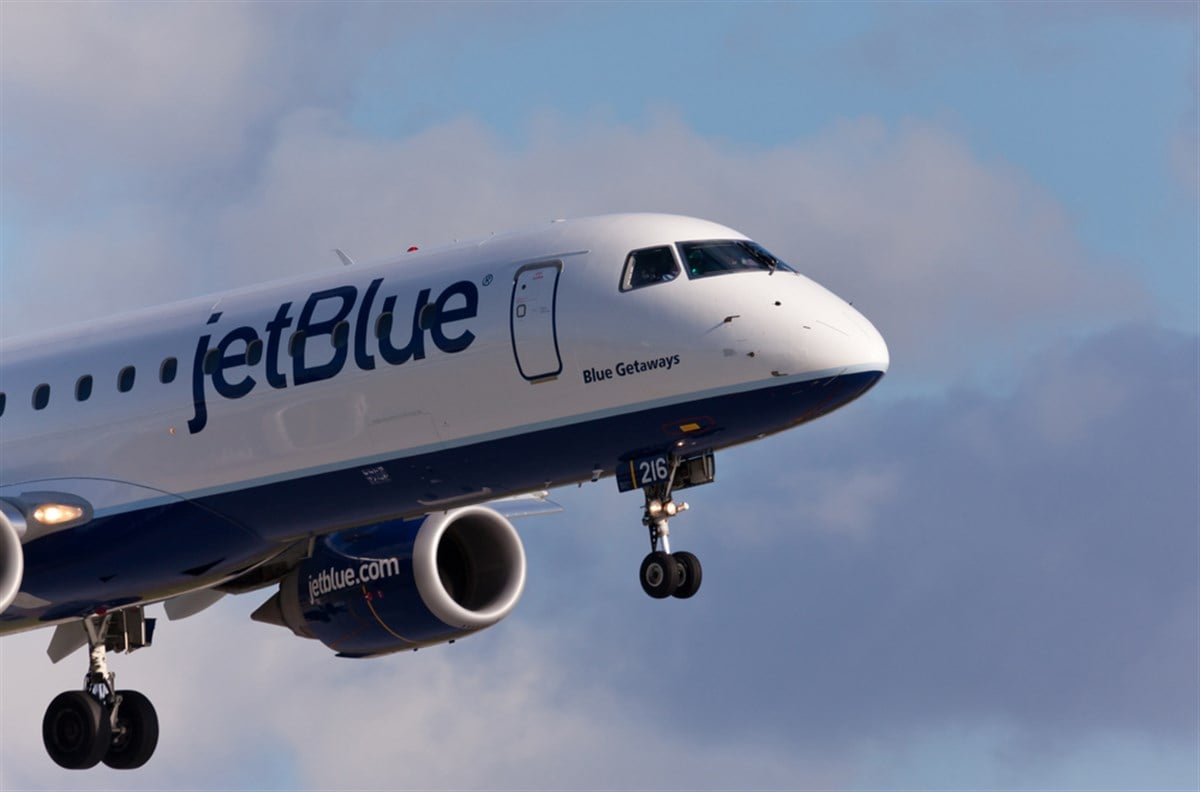

The proposal of a merger between JetBlue (NASDAQ: JBLU) and Spirit Airlines (NYSE: SAVE) initially sparked a great deal of interest among investors and industry observers. It promised to create a major player in the transportation sector, potentially offering benefits such as cost savings and an expanded range of route options. However, recent developments have cast a shadow over this merger as a federal judge has issued a ruling that effectively blocks the deal. This decision raises hopes among consumers for a more competitive airline industry.
DOJ’s antitrust concerns
The Department of Justice (DOJ) has been a strong opponent of the proposed JetBlue-Spirit merger, and their arguments against it are complex. Their primary concern is that the merger would harm competition and lead to higher airfares.
The DOJ argues that the merger would result in a significant reduction in competition in the airline industry. They have presented data showing that the merger would create overlapping routes and substantially increase the combined entity’s market share. This dominance in specific markets could give the new airline significant pricing power, leading to higher ticket prices for consumers.
The DOJ has also thoroughly analyzed the market share the merged JetBlue-Spirit entity would control in various regions. This analysis shows that the combined airline would have a dominant market share in several markets, which could stifle competition and leave consumers with fewer choices.
A key argument put forth by the DOJ is that consumer interests must be protected. They contend that allowing this merger to proceed could result in passengers facing higher fares and fewer options, undermining the principles of affordability and choice that are vital for air travel consumers. To emphasize the importance of preserving competition for the benefit of consumers, a high-ranking DOJ official stated, “Competition is the lifeblood of the airline industry, and we must ensure it thrives to protect consumers.”
JetBlue and Spirit’s Defense
JetBlue and Spirit Airlines have vigorously defended their merger proposal, emphasizing several potential benefits they believe it could bring to both airlines and their passengers. The airlines argue that merging their operations would result in significant cost savings through synergies in various areas, including maintenance,
operations, and administrative functions. The combined entity could pass these savings on to consumers in the form of more competitive fares. One of the key selling points of the merger is the promise of expanded route options for passengers. By combining their networks, JetBlue and Spirit aim to offer a broader range of destinations, potentially opening up new travel opportunities for customers.
To counter the DOJ’s claims, the airlines presented evidence such as simulations of fare changes and analyses of the potential benefits to passengers. They assert that the merger is in the best interest of both their companies and their customers. A representative from one of the airlines expressed disappointment with the court decision, stating, “We firmly believed that this merger was in the best interest of both our companies and our valued customers.”
Court’s Ruling and Reasoning
The pivotal decision regarding the fate of the JetBlue-Spirit merger was entrusted to Judge Young, whose ruling profoundly impacted the merger’s progress. Judge Young’s decision was based on a careful study of the case’s complex details and focused on the expected consequences of the proposed merger.
A central aspect of Judge Young’s deliberation was his deep-seated concerns regarding the potential negative consequences the merger might have on competition within the airline industry. Rather than relying on vague notions, he identified specific, measurable elements. For example, he emphasized the dominant market share the merged entity would hold in some geographic regions.
Judge Young’s ruling underscored his conviction that preserving competition within the airline industry is paramount. This foundational belief guided his decision-making process throughout the case. He firmly believed that the risks associated with the proposed merger, such as the potential escalation of airfares, far outweighed any purported advantages or efficiencies it might bring.
Implications and Outlook
The court’s decision to block the JetBlue-Spirit merger reverberates through the boardrooms of these two airlines and across the entire airline industry. The implications are twofold, encompassing both immediate and long-term considerations.
For JetBlue and Spirit Airlines, the immediate aftermath of the blocked merger necessitates a careful reevaluation of their strategies. This introspection is crucial as they confront the reality of the merger’s cancellation. It may involve a profound reassessment of their business models, operations, and growth trajectories. The airlines must weigh their options meticulously, considering various avenues to advance their corporate objectives.
JetBlue and Spirit may explore alternative paths to chart their courses forward. This could encompass revising their existing business strategies to adapt to the changing landscape. Without the merger, they might seek new partnerships, alliances, or acquisitions to achieve their growth targets. Furthermore, an examination of potential expansion plans may be on the horizon, considering routes, markets, and fleet developments to enhance competitiveness.
Beyond the immediate impact on JetBlue and Spirit, the court’s ruling may signal broader shifts within the airline industry. It could mark the emergence of a trend characterized by stricter antitrust enforcement as regulatory bodies become increasingly vigilant in preserving competition. This, in turn, could have far-reaching effects on the industry’s dynamics, potentially fostering a more competitive landscape as airlines recalibrate their strategies in response to heightened scrutiny.
The court’s decision to block the JetBlue-Spirit merger has significant implications for the airline industry and the millions of passengers it serves. The ruling underscores the vital importance of competition in ensuring affordable air travel for consumers. As we look to the future, the direction of competition in the airline industry remains uncertain, with the potential for appeals, negotiations with the DOJ, or the emergence of alternative merger plans. One thing is clear: the consumer’s voice in advocating for competition has been heard, and the outcome of such high-stakes battles will shape the industry’s future. The future of air travel remains intriguingly uncertain, with many stakeholders eagerly watching for developments that will impact how we fly.
